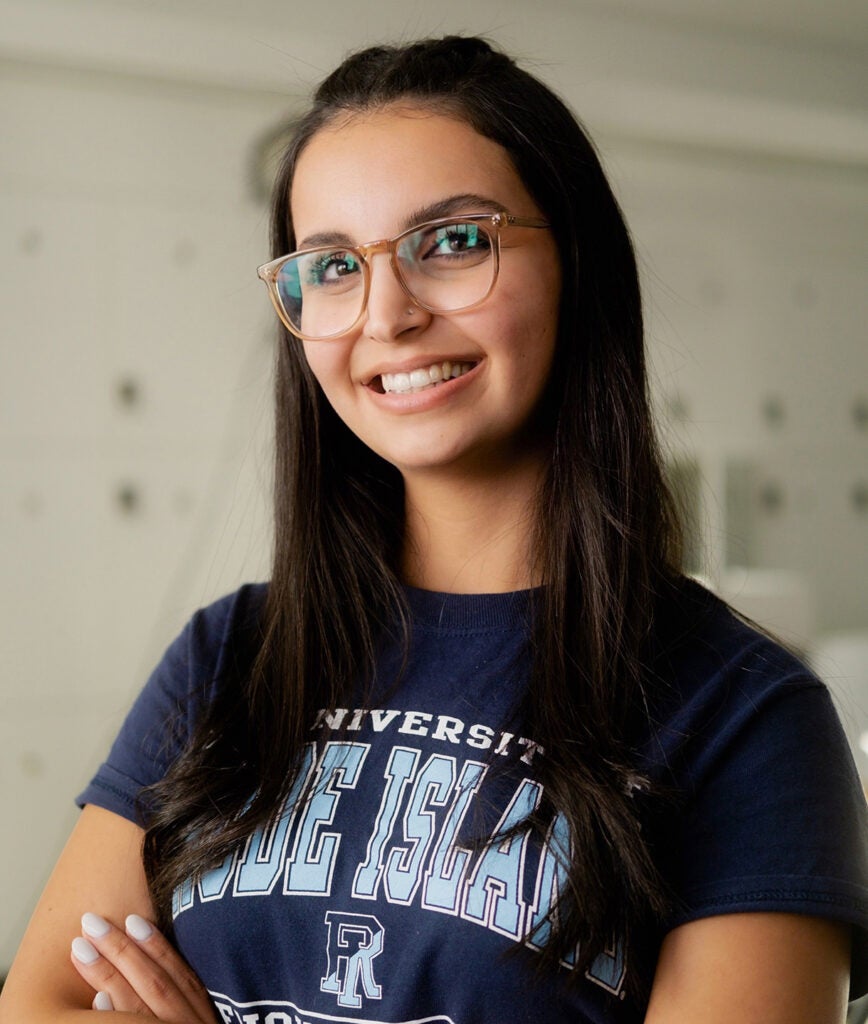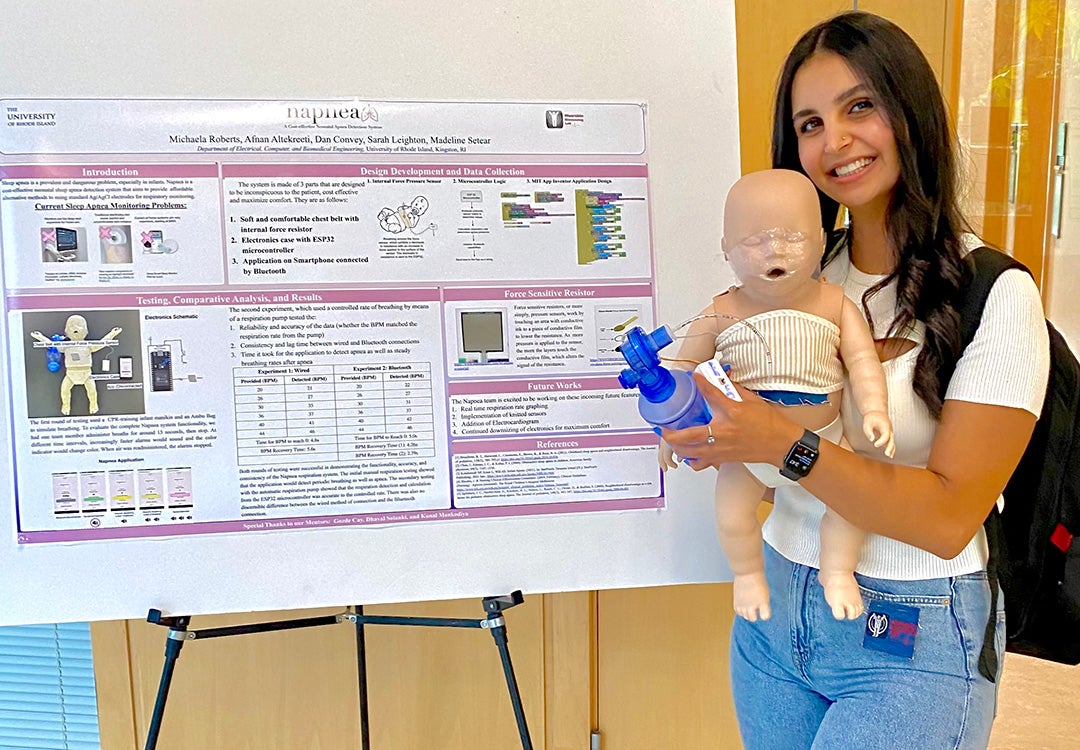KINGSTON, R.I. – Nov. 24, 2021 – Infant apnea is defined by the American Academy of Pediatrics as “an unexplained episode of cessation of breathing for 20 seconds or longer, or a shorter respiratory pause associated with bradycardia, cyanosis, pallor, and/or marked hypotonia.”
While infant apnea is very rarely fatal, it is frightening to the observer, and some theories even link it to sudden infant death syndrome.
Afnan Altekreeti, a senior studying biomedical engineering at the University of Rhode Island, has been working with her peers Michaela Roberts and Dan Convey on a project called, Napnea, which is a neonatal apnea detection system.

The project is a continuation of a senior capstone design project Sarah Leighton and Madeline Seater worked on last year.
Napnea is an electronic textile-based respiration monitoring system consisting of a soft electronic textile chest belt that is integrated with a force sensor and a computing system to monitor respiration, periodic breathing and apnea.
“The Napnea system shows promise to be a cost-effective, user-friendly method to monitor respiration and apnea,” said Altekreeti. “The system addresses real-world, time-sensitive health data for our population’s most vulnerable infants.”
Altekreeti, Roberts and Convey have been conducting their research in the Wearable Biosensing Laboratory under the guidance of Associate Professor Kunal Mankodiya.
“There have been many obstacles to overcome and many late nights working in the lab,” said Altekreeti, who lives in Warwick. “One technical challenge we faced was the results of the respiration simulator not being 100% accurate at first.”
Another challenge has been preparing to present the project at an international conference in Washington, D.C. on Dec. 16-18.
“We didn’t learn about the opportunity to attend the conference until a few weeks before the deadline, making it difficult for us to put together a proposal in a short time frame,” said Altekreeti.
The Conference on Connected Health: Applications, Systems and Engineering Technologies is co-hosted by the Institute of Electrical and Electronics Engineers and the Association for Computing Machinery.
Altekreeti received a $600 award from the National Science Foundation to cover the expenses of attending the conference. She’ll attend the conference with her mentor, Gözde Çay, a doctoral student in computer engineering at URI.
“Afnan has been a dedicated undergraduate researcher who is now taking the smart textiles project to a different level,” said Mankodiya. “This travel award is an example of her outstanding efforts that was further shaped by her mentor Gözde Çay.”

